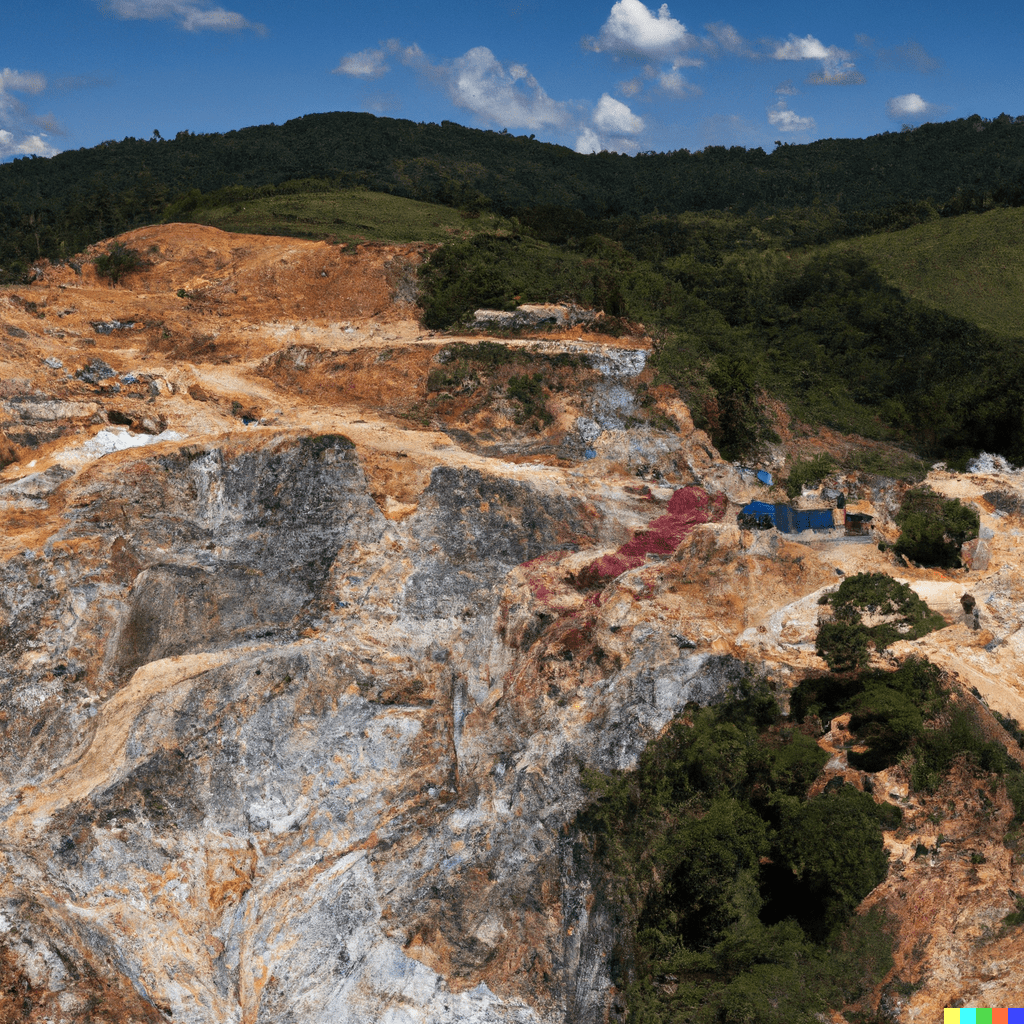
The contrasting approaches of Brazil and Armenia towards gold mining reveal the complexities of environmental preservation and exploitation. While Brazil has recently intensified its efforts to crack down on illegal mining in the Amazon rainforest, Armenia has allowed the controversial Amulsar gold mine project to proceed, raising significant concerns about its environmental impact.
Brazil’s Crackdown on Illegal Mining
Brazil has intensified its crackdown on illegal gold mining in the Amazon rainforest by clearing illegal miners from the Yanomami territory and planning to remove miners from six more reserves this year. The government’s new environmental crimes division uses satellite imagery to locate and dismantle mining camps and has destroyed 250 mining camps and seized 1.2 kg of gold. The operation by Brazil’s environmental protection agency, Ibama, the indigenous affairs department, Funai, and special forces aims to halt illegal mining in the region, which poses a humanitarian crisis to the Yanomami people and causes environmental damage. The joint operation targets the flow of supplies rather than individual settlements. With an estimated 20,000 illegal miners dispersed throughout the dense jungle region, officials say it’s key to find alternative employment opportunities for the miners to prevent them from returning to the areas from which they have been expelled or invading new ones.
The crackdown on illegal mining sites in Brazil, while ostensibly progressive, unveils the deep-seated contradictions within the capitalist patriarchy and its exploitative nature towards both the working class and the environment. The artisanal and small-scale mining (ASM) sector, which offers sustenance to millions of Brazilians, including a significant number of women, falls prey to this oppressive system. While legal mining operations exist, the working class, especially women, engaged in ASM are burdened with onerous regulations and seemingly insurmountable barriers to acquiring licenses and permits. As a result, many are forced to operate illegally, risking fines, arrest, and even violence from organized crime groups that control much of the illegal mining trade.
Furthermore, the environmental destruction wrought by legal mining operations, legitimized by the capitalist patriarchal system, mirrors the devastation caused by illegal activities. Large-scale mining perpetuates deforestation, water pollution, and soil degradation, among other environmental catastrophes. These ecological harms disproportionately affect women, who bear the brunt of resource scarcity, disrupted livelihoods, and increased domestic burdens.
This heightened repression of illegal mining may inadvertently centralize power and resources in the hands of the capitalist patriarchy, embodied by larger mining companies, further marginalizing the ASM working class, particularly women and other marginalized groups.
Armenia’s Amulsar Gold Mine Controversy
In contrast, the situation in Armenia highlights the dangers of prioritizing economic interests over environmental protection. On February 22, 2023, the Armenian government signed an agreement with Lydian International, allowing the mine’s exploitation, raising significant concerns about potential environmental, social and health risks, including water contamination, soil pollution, and damage to the area’s biodiversity. This, in turn, could have severe health consequences for the local population, including respiratory issues, waterborne diseases, and long-term illnesses caused by exposure to hazardous materials.
Critics fear that mining activities could exacerbate the risk of landslides and earthquakes in the seismically active area. Additionally, the proximity of the mine to Lake Sevan, the largest freshwater lake in the region, raises concerns about the potential contamination of this vital water source.
The use of cyanide in the gold extraction process poses significant health risks to local residents, as well as to the flora and fauna in the region. The long-term effects of cyanide exposure include damage to the nervous system, thyroid gland, and other vital organs.
Moreover, Jermuk, the town near the Amulsar Gold Mine, is well-known for its natural hot springs and health resorts, which attract tourists from across the country and beyond. Opponents of the mine argue that its development could tarnish the area’s reputation as a tourist destination, negatively impacting local businesses and the economy. The potential environmental and health risks associated with the mine could also deter visitors, further hindering the growth of the tourism sector in the region.
The project has also created divisions within the local community, with some supporting the mine due to potential economic benefits and job opportunities, while others vehemently oppose it due to the environmental and health risks. The mining project has also raised concerns about the cultural and historical heritage of the region, with fears that it could lead to the destruction of ancient sites, either directly through excavation or indirectly through pollution and habitat destruction.
The situation remains tense, with ongoing legal battles and public pressure for a comprehensive, transparent, and independent environmental impact assessment. The outcome of this struggle could have significant implications for the future of Armenia’s environment, public health, and subsistence.
The contrasting strategies employed by Brazil and Armenia in their respective gold mining industries signify the pressing necessity to tackle the deep-seated problems of environmental degradation and societal inequality. In light of the destructive effects of colonialism, capitalism, and patriarchy on our natural environment and the human population, it is no longer acceptable to ignore the critical need for action. It is imperative that we take immediate measures to hold those in positions of power accountable and strive for a sustainable future that prioritizes the welfare of the planet and all living beings. Ensuring the preservation of our planet for future generations is our responsibility, and we must act urgently to achieve this goal.
Text by Taguhi Torosyan